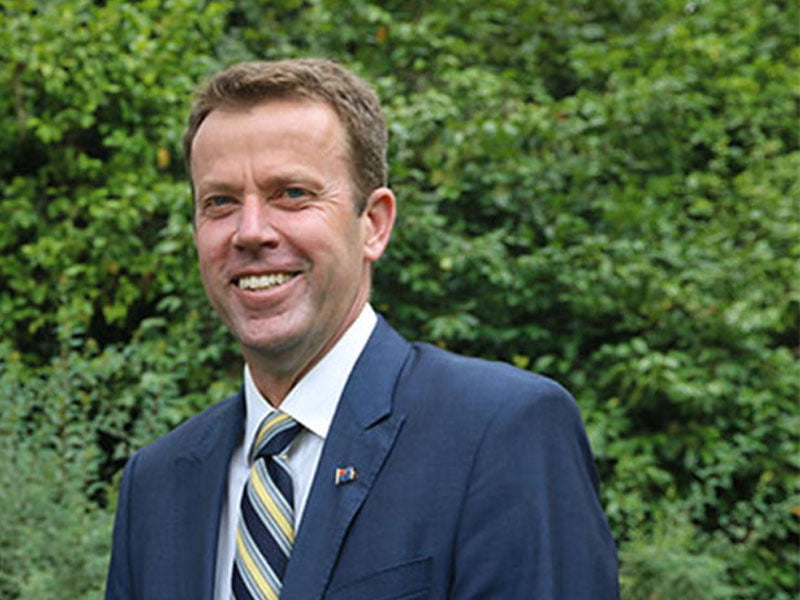Australia will officially back the scrapping of COVID-19 vaccine intellectual property rules to assist developing nations in accessing cheaper vaccines following months of campaigning and protests against the federal government’s stance.
Led by India and South Africa, there has been a push this year for a waiver of the World Trade Organisation’s (WTO) Trade-Related Aspects of Intellectual Property (TRIPS) agreement in relation to COVID-19 vaccines and other health products.

This would allow for greater sharing of vaccine intellectual property (IP) in order to increase the availability and affordability of the products for poorer nations.
In May this year, the US announced it would support the scraping of the IP rules, and has since been joined by China and Russia among others.
But despite welcoming the announcement by the US government and pledging to play a “constructive role” on the agreement, there has been little discussion of the proposal in Australia, and the federal government had not fully committed to support the proposal at a meeting of the World Trade Organisation.
After months of sustained pressure, the government has now confirmed that it will be backing the TRIPS waiver for COVID-19 vaccines at the WTO next week.
Speaking on Wednesday, Trade Minister Dan Tehan said he had discussed the issue with his counterparts in India, South Africa and the US, and would be supporting the proposal.
“We’ve always said that we will support a TRIPS waiver when it came to COVID-19. When the US came out and said this, the Prime Minister welcomed that news,” Mr Tehan told the media on Wednesday.
“And we continue to work constructively in Geneva to do everything we can to expand the production of vaccines globally because we need everyone across the globe to be able to get access to a vaccine ultimately if we are to be safe. We’ve already expressed that support.”
The decision comes ahead of Foreign Affairs Minister Marise Payne’s trade visit to India this weekend, and a meeting of the WTO’s TRIPS Council next week.
While the government has said that it has always supported the IP waiver, there have been concerns around the government’s stance, with a relative silence around the issue and no formal declaration of support.
Human Rights Watch had been urging Australia to fully support the TRIPS waiver for several months and welcomed the confirmation this week.
“It’s about time,” Human Rights Watch Australian researcher Sophie McNeill told InnovationAus. “The government, we believe, has been deliberately ambiguous. They didn’t want to firmly state their position, so we’re happy they now have, but we want these words to be followed by firm action.
“This weekend when Minister Payne is in India we want her to express unequivocal public support for the proposal and we want that to be followed up at the TRIPS Council meeting, with Australia standing firmly with the US. This is an essential part of ending this pandemic.
“It’s welcome and it’s long overdue, and we hope that Australia can really help convince these European countries who are holding out to understand it’s the only way we’re all going to be safe.”
Australia’s own difficulties with sourcing COVID-19 vaccines shows how difficult this process will be for poorer nations, Ms McNeill said.
“What Australia has proven is that if a wealthy country like us can’t get enough vaccines, then it’s clear the current arrangements don’t work. Something needs to be done to fix the current production and licensing system,” she said.
“The TRIPS waiver isn’t going to solve everything, there are still issues around supply and where you can manufacture mRNA vaccines due to the technology. It’s not going to fix everything overnight, but we think it will help.”
While Australia welcomed the US government’s support of the TRIPS waiver earlier this year, department representatives told a Senate estimates hearing in July that no decision had been made on the issue at the time.
This led to a campaign urging Australia to vocally support the IP waiver, and even a protest over the issue outside the Australian consulate in California.
Numerous health, human rights and other non-government organisations have been campaigning for the IP waiver for several months. The Australian Fair Trade and Investment Network, including a group of 15 non-governmental organisations and churches, met with Mr Tehan this week and said he confirmed Australia’s support for the TRIPS waiver.
WTO chief Ngozi Okonjo-Iweala has labelled equitable access to vaccines as the “moral and economic issue of our time”.
Unsurprisingly, the large pharmaceutical companies are strongly opposed to the IP waiver, with Pfizer telling the federal government in a submission earlier this year that such a decision could actually harm supply and the safety of vaccines in developing countries.
“IP rules are enabling an unprecedented amount of innovation and facilitating collaboration between biopharma innovators and partners,” Pfizer said in the submission.
“Not only would waiving the TRIPS commitments send the wrong message to future innovators in the next pandemic, it could make it harder to resolve the current one, particularly if companies begin to buy up scarce inputs in the hopes of manufacturing a vaccine using technology developed by others.”
Do you know more? Contact James Riley via Email.

